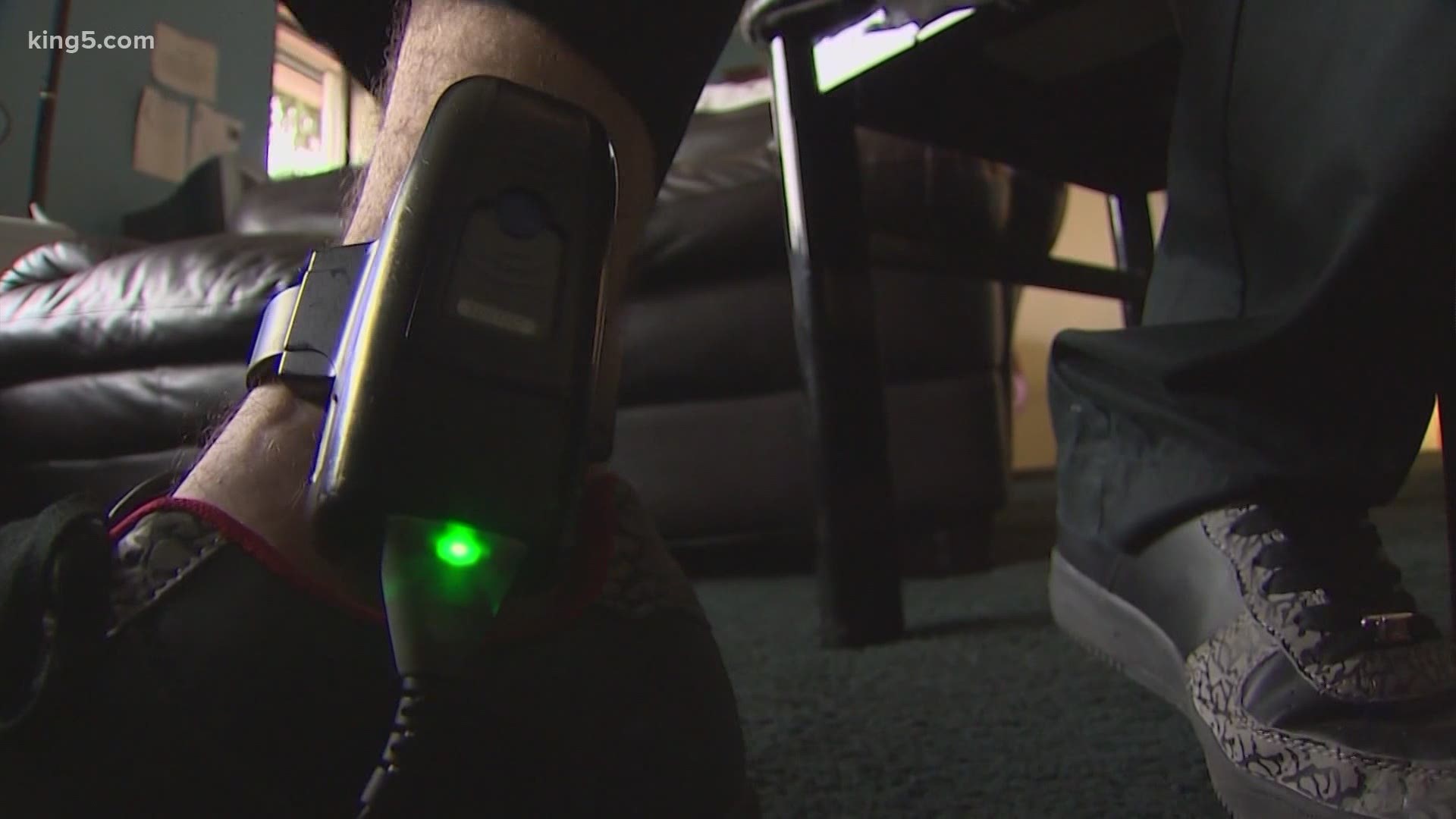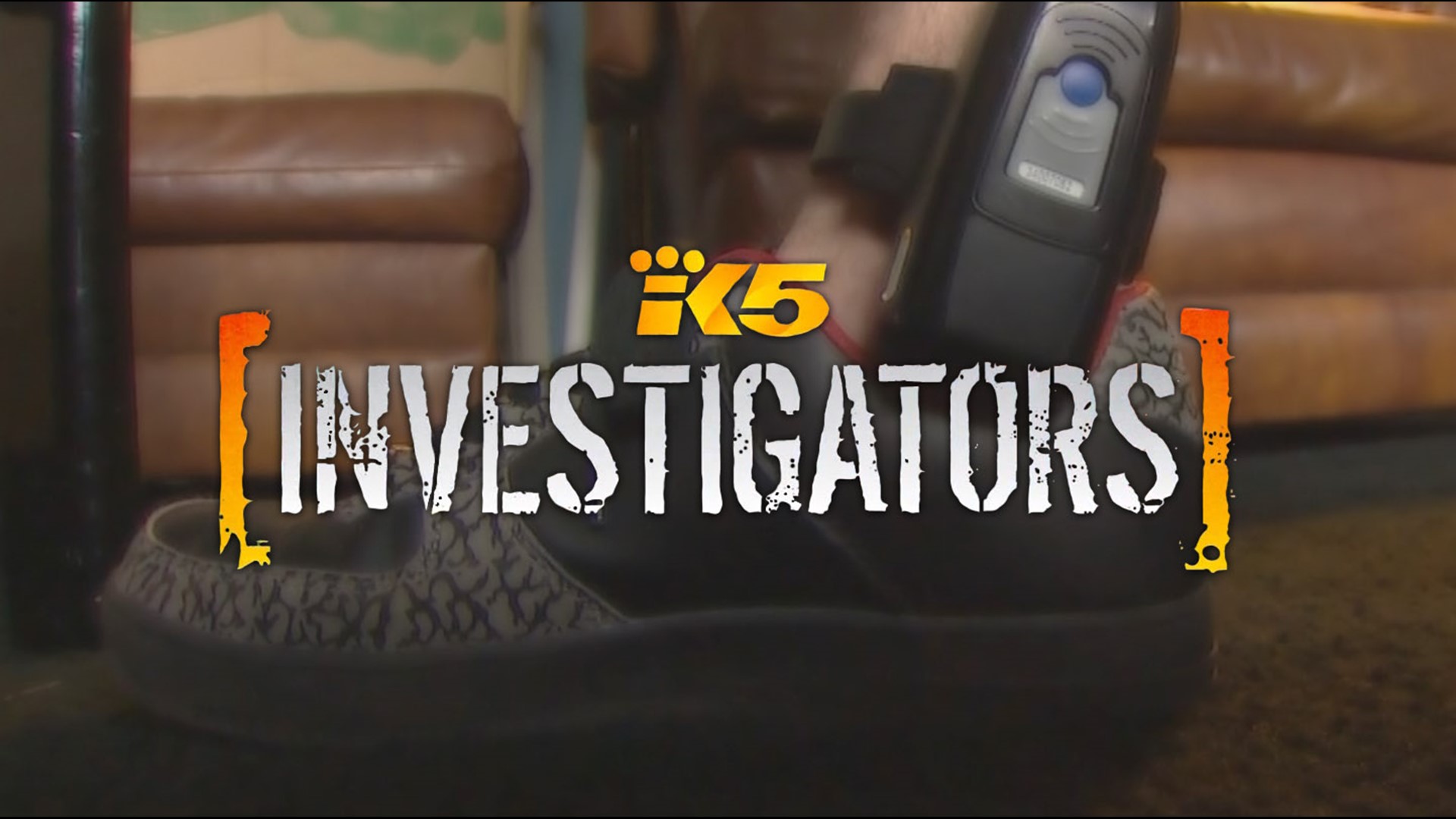King County Superior Court judges have been directed to stop placing people charged or convicted of violent crimes on electronic home detention (EHD), as an alternative to serving time in the King County Jail.
News of the public policy change came via an email authored by King County Superior Court Chief Criminal Judge Patrick Oishi on Wednesday, Oct. 7, obtained by the KING 5 Investigators. The email was sent to all other judges and King County prosecutors the morning after KING 5 exposed that offenders on EHD are not monitored by the county on nights and weekends.
“The Court learned the EHD program run by DAJD (King County Department of Adult and Juvenile Detention)… does not comport with state law…. DAJD is working to correct these issues,” wrote Oishi. “Until such time as the EHD program complies with state law, the Court is unable to place defendants, who are charged with crimes (involving victims who need to be notified of violations) on EHD.”
Oishi noted that the lack of full-time monitoring violates state law requiring victim notification when an offender violates conditions ordered by the court.
Advocates and victims applauded the quick change in policy.
“I’m so relieved to hear that. I think this is an important step to take right away to make sure nobody gets hurt or worse,” said family law attorney and crime victim advocate Hillary Roberts of Seattle. Roberts herself is a rape survivor. “(The Court’s) response I think is consistent with my experience as an attorney in this community. It’s full of people who care and want to do the right thing and will remedy mistakes when it’s brought to their attention.”
Currently, a vendor hired by the county is notified at all hours if an offender on EHD violates conditions such as going too close to a victim’s home or cutting off the bracelet. The vendor sends an alert with information of the violation to the county, but no one is staffed to see those alerts on nights and weekends. DAJD staffs the office Monday through Friday, 7 a.m. to 3:30 p.m., according to court documents. If a violation occurs outside that time frame, the county will see the notification the next business day.
During the time of COVID-19, more people than ever are on electronic home detention in King County, as courts are pressured to keep jail populations down.
In 2015, 32 were placed on electronic home detention. That number increased to 111 people in 2019. During the coronavirus the number has topped 200, dozens of whom have been charged or convicted of serious offenses including sex crimes, robbery, and assault.
Superior Court leadership is considering taking additional steps. Presiding Judge Jim Rogers said they may evaluate current cases where offenders were ordered on electronic home monitoring to determine if they should be placed into jail instead.
“It’s a serious problem,” Rogers said.


